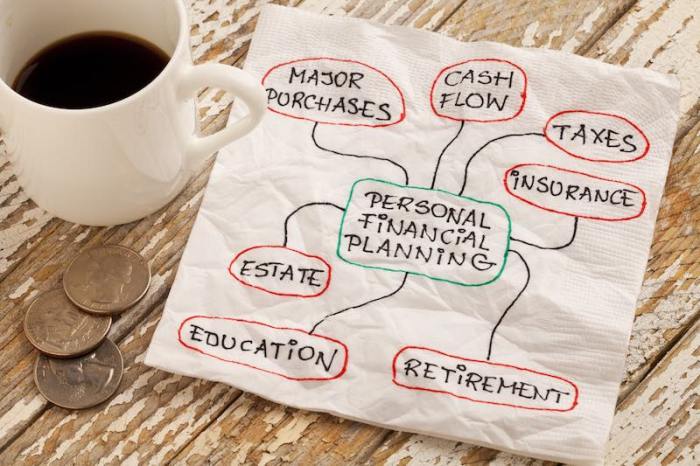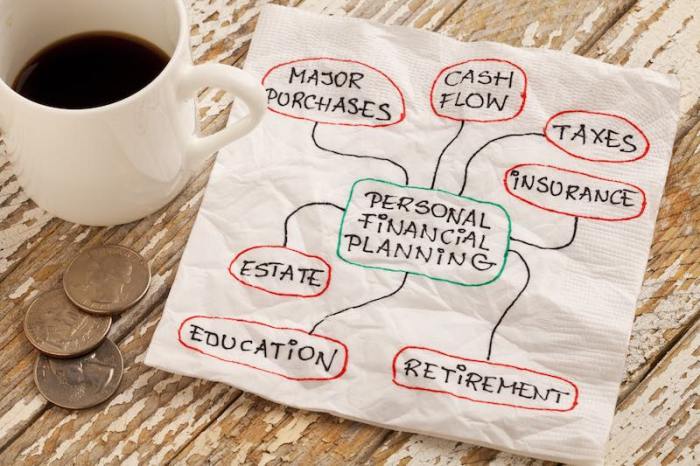Kicking off with Improving Personal Finance, this dives into the importance of managing money wisely and making smart financial decisions. From budgeting techniques to saving strategies and debt management, this guide will help you take control of your finances like a boss.
Importance of Personal Finance: Improving Personal Finance

Personal finance is crucial for financial stability as it involves managing your income, expenses, savings, and investments effectively. By practicing good personal finance habits, individuals can achieve long-term financial security and achieve their financial goals.
Benefits of Managing Personal Finances Effectively
- Ability to budget and control spending
- Build emergency savings for unexpected expenses
- Reduce debt and avoid high-interest payments
- Invest for the future and grow wealth
Examples of Good Personal Finance Practices
- Creating a monthly budget and sticking to it
- Automating savings and investments
- Paying off high-interest debt first
- Diversifying investments to reduce risk
Budgeting Techniques
Budgeting is an essential skill for managing personal finances effectively. By creating a budget, individuals can track their income, expenses, and savings to ensure financial stability and achieve their financial goals.
Different Methods for Creating a Personal Budget
- The 50/30/20 Rule: Allocate 50% of your income to needs, 30% to wants, and 20% to savings and debt repayment.
- Zero-Based Budgeting: Assign every dollar of your income to a specific expense or savings goal, so that your income minus expenses equals zero.
- Envelope System: Divide your cash into different envelopes labeled for specific expenses, such as groceries, entertainment, and transportation.
Tips on Sticking to a Budget and Avoiding Overspending
- Track Your Expenses: Keep a record of all your purchases to identify spending habits and areas where you can cut back.
- Set Realistic Goals: Establish achievable financial goals that motivate you to stick to your budget.
- Avoid Impulse Purchases: Think carefully before making a purchase and differentiate between needs and wants.
Importance of Tracking Expenses and Adjusting the Budget
- Identify Spending Patterns: Tracking expenses helps you understand where your money is going and make informed decisions about budget adjustments.
- Adapt to Changes: Life circumstances and expenses can change, so it’s important to review and adjust your budget regularly.
- Emergency Fund: By tracking expenses and adjusting your budget, you can prioritize building an emergency fund to cover unexpected expenses.
Saving Strategies
Saving money is crucial for achieving future financial goals and ensuring financial stability. By saving consistently, you can build a safety net for unexpected expenses, invest in opportunities, and work towards long-term objectives.
Setting Up Automatic Transfers
Automating your savings can be a game-changer in helping you save consistently. By setting up automatic transfers from your checking account to a savings account or investment account, you remove the temptation to spend that money elsewhere. This method ensures that a portion of your income goes directly towards your savings goals without you having to actively think about it.
Creating an Emergency Fund
An emergency fund is a crucial part of any financial plan. By setting aside money specifically for unexpected expenses like medical emergencies, car repairs, or job loss, you can avoid going into debt or dipping into your long-term savings. Aim to save at least 3 to 6 months’ worth of living expenses in your emergency fund to provide a financial cushion in times of need.
Paying Yourself First
The concept of “paying yourself first” involves prioritizing your savings before spending on other expenses. By setting aside a portion of your income for savings as soon as you receive it, you ensure that your financial future is secured. This approach helps you build wealth over time and develop healthy financial habits that can lead to better financial outcomes in the long run.
Debt Management

Debt can have a significant impact on personal finances, affecting everything from credit scores to the ability to save and invest for the future. It’s important to understand how to manage debt effectively to avoid financial struggles and build a strong financial foundation.
Tips for Paying Off Debt Efficiently, Improving Personal Finance
- Create a budget: Start by tracking your expenses and income to see where you can cut back and allocate more towards debt payments.
- Prioritize high-interest debt: Focus on paying off debts with the highest interest rates first to save money in the long run.
- Use the debt snowball or avalanche method: Choose a debt repayment strategy that works best for you, whether it’s tackling the smallest debts first or focusing on the highest interest rates.
- Consider debt consolidation: Consolidating multiple debts into one lower-interest loan can make it easier to manage payments and save on interest.
- Avoid taking on new debt: While paying off existing debt, try to avoid accumulating new debt to prevent further financial strain.
Good Debt vs. Bad Debt
- Good debt: Good debt is typically used to invest in assets that can increase in value over time, such as a mortgage for a home or student loans for education.
- Bad debt: Bad debt is usually used to purchase depreciating assets or items that do not generate long-term value, such as high-interest credit card debt for unnecessary expenses.
- Managing good debt: Make sure to make timely payments on good debts to build a positive credit history and take advantage of potential tax benefits.
- Managing bad debt: Focus on paying off bad debts quickly to avoid high interest charges and prevent long-term financial struggles.
